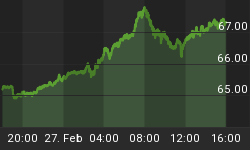During the presidency of Donald Trump, there was an evident trend of decline in student and work visas from Asian countries, predominantly China. Now, it seems that the US can expect an influx of Chinese workers, but it has nothing to do with a new US administration. This influx will be driven by the nature of economics.
Due to the recent crackdown on cryptocurrency mining and trading by Chinese authorities, the now-100,000-strong crypto mining ‘workforce’ is at an occupational crossroads.
Last month, China imposed new rules on crypto currencies with the People’s Bank of China saying that financial services companies and payment services would be banned from pricing or conducting business in virtual currencies, citing zero protection for consumers should they incur any losses from crypto transactions.
“Recently, cryptocurrency prices have skyrocketed and plummeted, and speculative trading of cryptocurrency has rebounded, seriously infringing on the safety of people’s property and disrupting the normal economic and financial order,” the regulator’s statement said. Chinese Vice Premier Liu He also said that tighter crypto regulation was needed to protect the financial system.
In order to curb money-laundering, cryptocurrency trading has been illegal in China since 2019. The Chinese authorities issued similar bans in 2013 and 2017.
Considering that at least 65% of global miners working on the bitcoin blockchain were based in China, experts are already calling it the “Great miner exodus.” Some of China’s provinces already have given miners “eviction notices”, blaming them for power shortages.
Local media is reporting that Chinese crypto miners have already started packing their bags, some selling their equipment or just transporting their machines to neighboring countries.
Quite a few of them are expected to move to the US, with CNBC reporting that Texas might be the obvious choice.
Texas often has some of the world’s lowest energy prices, and its share of renewables is growing over time. In addition to that, the state’s authorities are crypto friendly. Also, last month Chinese BIT Mining announced plans to invest $25 million in a cryptocurrency mining data center in Texas.
And now, it may be easier for China’s bitcoin miners to set up shop in the U.S., under an administration that is slightly friendlier.
The Trump administration was accused repeatedly of making it increasingly difficult for foreign students and skilled workers to obtain visas. U.S.-based tech companies warned that tightening immigration policies could result in the US losing “tech dominance war”.
In early 2020, the administration imposed a travel ban on students entering the U.S. from China, but there was a decline in visa approvals even before the pandemic
In 2017, there was a 17% drop in international students in the U.S., with a 28% drop in Indian students and a 24% drop in Chinese students receiving visas.
In 2018, immigration officials denied nearly one out of every four requests for new visas for skilled foreign workers. At that time, it was the highest denial rate for new H-1B visa applications in nearly 10 years.
In the six months to September 2020, the Trump administration granted just 808 visas to students from China—a 99% decline from the same period in 2019. As for the applicants from India, the U.S. granted 88% fewer student visas.
We saw a similar situation with work visas. The Trump administration either suspended or made it hard to obtain several temporary work visas for skilled workers, managers and au pairs.
However, since taking office, President Biden has issued several decisions to reverse that. In February, Biden revoked the Trump-era ban on certain immigrant entries. Then, in late April, President Biden lifted travel restrictions that prohibited Chinese students from entering the U.S.
A new wave of crypto-mining immigrants may be among the first to take advantage of that.
















